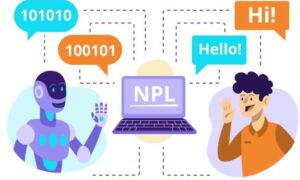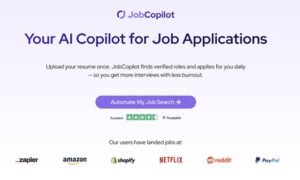Fintech (short for Financial Technology) has taken the world by storm, and Belgium is no exception. From contactless payments to digital investment platforms, Belgium’s tech-savvy population is embracing a new era of financial services. But one particular area that has seen massive growth is fintech lending platforms where people and businesses can borrow money quickly and easily using technology.
What is a Fintech Lending Platform?
Before going into the innovations, let’s keep things simple.
A fintech lending platform is an online service or app that allows people or businesses to borrow money without going through traditional banks. These platforms use digital tools like artificial intelligence, blockchain, and data analytics to speed up the process, reduce paperwork, and sometimes even offer better interest rates. It’s basically like getting a loan but faster, easier, and smarter.
Why is Fintech Lending Growing in Belgium?
Belgium is a small country with a strong economy and high internet usage. Over 93% of Belgians use the internet, and most people own smartphones. This creates the perfect environment for fintech companies to offer smart financial solutions especially to young people and small businesses that might struggle with traditional bank loans.
In addition, the Belgian government and the European Union (EU) have supported digital innovation in finance, making it easier for fintech companies to grow.
Now, let’s explore the top fintech innovations in lending across Belgium.
AI-Powered Credit Scoring
One of the biggest changes in fintech lending is how companies decide who gets a loan.
Traditionally, banks looked at your credit history, income, and a bunch of paperwork to determine if you qualify. But what if you don’t have a long credit history? That’s where Artificial Intelligence (AI) steps in.
Companies like Mozzeno use AI to analyze alternative data such as how you manage your bank account, your online behavior, or even how regularly you pay bills. This gives more people, especially young borrowers and freelancers, a chance to get loans they might not have qualified for before.
Why it matters:
- Fairer access to credit
Faster approval times
Lower risk of default for lenders
Peer-to-Peer (P2P) Lending Platforms
Another game-changer in Belgium is peer-to-peer lending, where people lend money to other people (or businesses) directly without a bank in the middle.
Platforms like Look\&Fin and Mozzeno connect investors who want to earn interest with borrowers who need funds. These platforms act as middlemen, verifying both sides and handling the technical stuff.
What’s innovative here?
- Lower fees: Cutting out banks means fewer costs.
Community-driven: Real people helping other real people.
Custom investment: Lenders choose who they want to support.
Digital Identity Verification
In traditional banking, verifying your identity can take days and involve multiple visits to a bank. But Belgian fintech lenders are using eID (electronic identity cards) and biometric technology to verify identities in minutes.
For example, a fintech app might allow you to scan your ID and take a selfie to confirm you are who you say you are all from your phone.
Benefits:
- Faster onboarding
Safer for both users and companies
Reduces fraud
Open Banking Integration
Thanks to the EU’s PSD2 regulation, banks are now required to share customer data (with permission) with fintech apps. This means lending platforms in Belgium can access your banking info securely and use it to offer better loan products.
So if you apply for a loan, the platform can instantly analyze your income, expenses, and spending habits to give you a personalized offer no need to upload bank statements.
Platforms like Cake and Klarna (operating in Belgium) use open banking to power smarter financial services.
Perks:
- Personalized loans
Better financial planning
Real-time analysis
Green Lending Initiatives
As the world becomes more environmentally conscious, Belgian fintech platforms are supporting eco-friendly loans. These are loans that help people and businesses reduce their carbon footprint for example, financing solar panels or electric vehicles. Some platforms offer lower interest rates if your project supports the environment. Others partner with sustainability-focused banks to fund green projects.
Example: Mozzeno offers financing for energy-efficient home renovations through partner retailers.
Microloans for Small Businesses
Belgium has a thriving community of small businesses and startups. However, getting bank loans can be tough for new or small companies. That’s why some fintech lenders are offering microloans small loans with flexible terms to help entrepreneurs grow. Platforms like Lendahand and Look\&Fin are giving small business owners a fighting chance by using crowdfunding or direct lending.
Highlights:
- Faster funding for businesses
Easier application process
More support for local economies
Buy Now, Pay Later (BNPL) for Everyday Purchases
You’ve probably heard of Buy Now, Pay Later (BNPL) services — they let you buy something now and split the cost over several months.
While global players like Klarna and PayPal offer BNPL, local Belgian fintechs are entering the market too. These services aren’t just for clothes or gadgets — some are now offering BNPL for education, home repairs, or even medical expenses.
Why this is innovative:
- Helps people manage money better
Encourages responsible spending
Makes big purchases more accessible
Challenges and Risks to Watch
Of course, fintech lending isn’t perfect. Here are some things to keep in mind:
- Overborrowing: Easy access to loans can lead some people to borrow more than they can repay.
Data privacy: Sharing your financial data with platforms requires trust and strong cybersecurity.
Lack of regulation: Not all platforms are well-regulated, so users need to do their research.
The Belgian Financial Services and Markets Authority (FSMA) plays an important role in monitoring these platforms and protecting users.
Conclusion
Belgium is quickly becoming a hotspot for fintech lending innovation. Whether it’s AI-powered credit scoring, peer-to-peer platforms, or green loans, technology is making it easier than ever for people to borrow and lend money.
For young people, startups, and anyone who has felt ignored by traditional banks, these innovations are opening doors. But just like with any financial tool, it’s important to use these services wisely. As Belgium continues to support digital finance, we can expect even more exciting fintech lending trends in the years ahead.



































